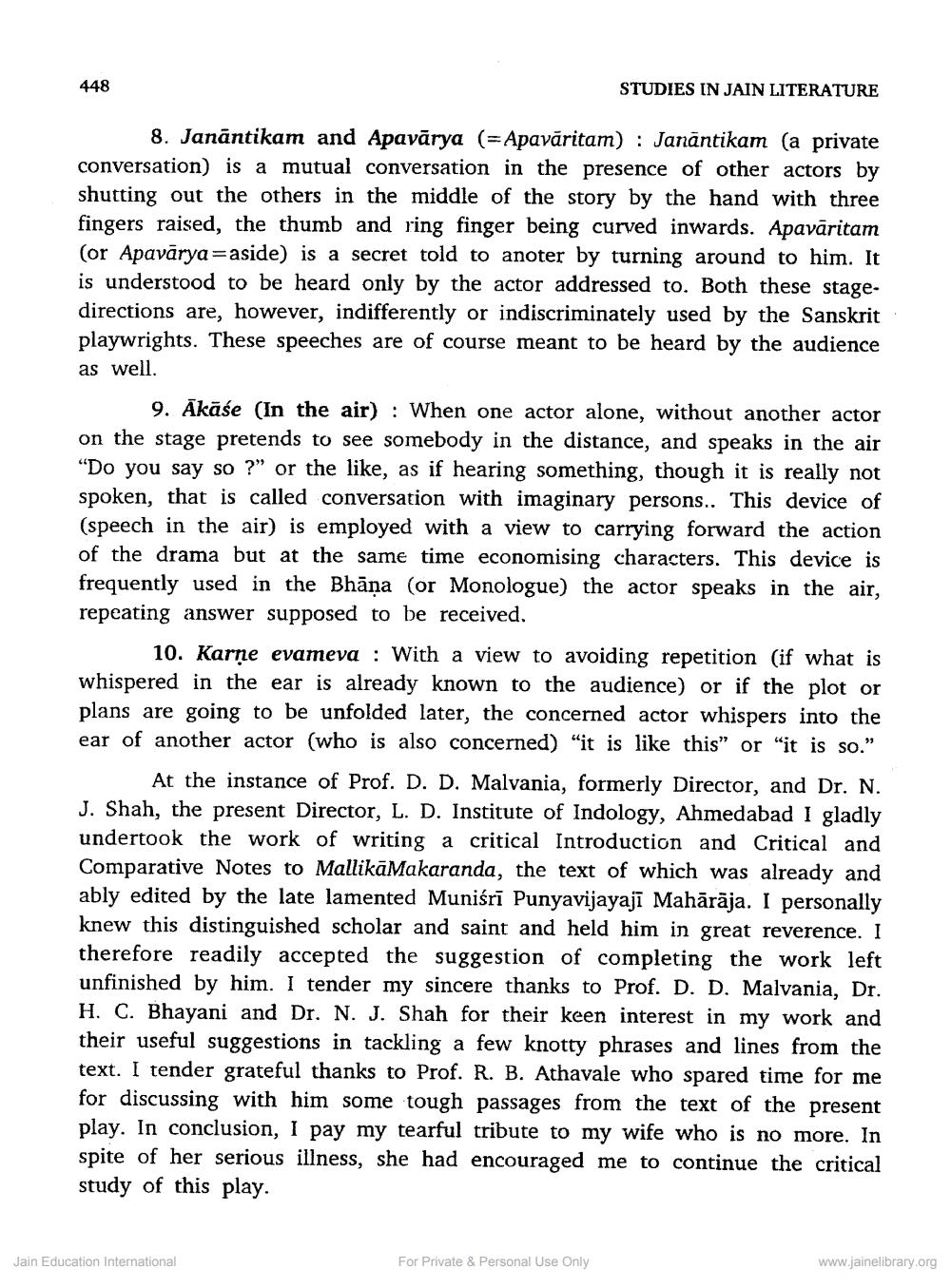________________ 448 STUDIES IN JAIN LITERATURE 8. Janantikam and Apavarya (= Apavaritam) : Janantikam (a private conversation) is a mutual conversation in the presence of other actors by shutting out the others in the middle of the story by the hand with three fingers raised, the thumb and ring finger being curved inwards. Apavaritam (or Apavarya=aside) is a secret told to anoter by turning around to him. It is understood to be heard only by the actor addressed to. Both these stagedirections are, however, indifferently or indiscriminately used by the Sanskrit playwrights. These speeches are of course meant to be heard by the audience as well. 9. Akase (In the air) : When one actor alone, without another actor on the stage pretends to see somebody in the distance, and speaks in the air "Do you say so ?" or the like, as if hearing something, though it is really not spoken, that is called conversation with imaginary persons.. This device of (speech in the air) is employed with a view to carrying forward the action of the drama but at the same time economising characters. This device is frequently used in the Bhana (or Monologue) the actor speaks in the air, repeating answer supposed to be received. 10. Karne evameva: With a view to avoiding repetition (if what is whispered in the ear is already known to the audience) or if the plot or plans are going to be unfolded later, the concerned actor whispers into the ear of another actor (who is also concerned) "it is like this" or "it is so." At the instance of Prof. D. D. Malvania, formerly Director, and Dr. N. J. Shah, the present Director, L. D. Institute of Indology, Ahmedabad I gladly undertook the work of writing a critical Introduction and Critical and Comparative Notes to MallikaMakaranda, the text of which was already and ably edited by the late lamented Munisri Punyavijayaji Maharaja. I personally knew this distinguished scholar and saint and held him in great reverence. I therefore readily accepted the suggestion of completing the work left unfinished by him. I tender my sincere thanks to Prof. D. D. Malvania, Dr. H. C. Bhayani and Dr. N. J. Shah for their keen interest in my work and their useful suggestions in tackling a few knotty phrases and lines from the text. I tender grateful thanks to Prof. R. B. Athavale who spared time for me for discussing with him some tough passages from the text of the present play. In conclusion, I pay my tearful tribute to my wife who is no more. In spite of her serious illness, she had encouraged me to continue the critical study of this play. Jain Education International For Private & Personal Use Only www.jainelibrary.org




